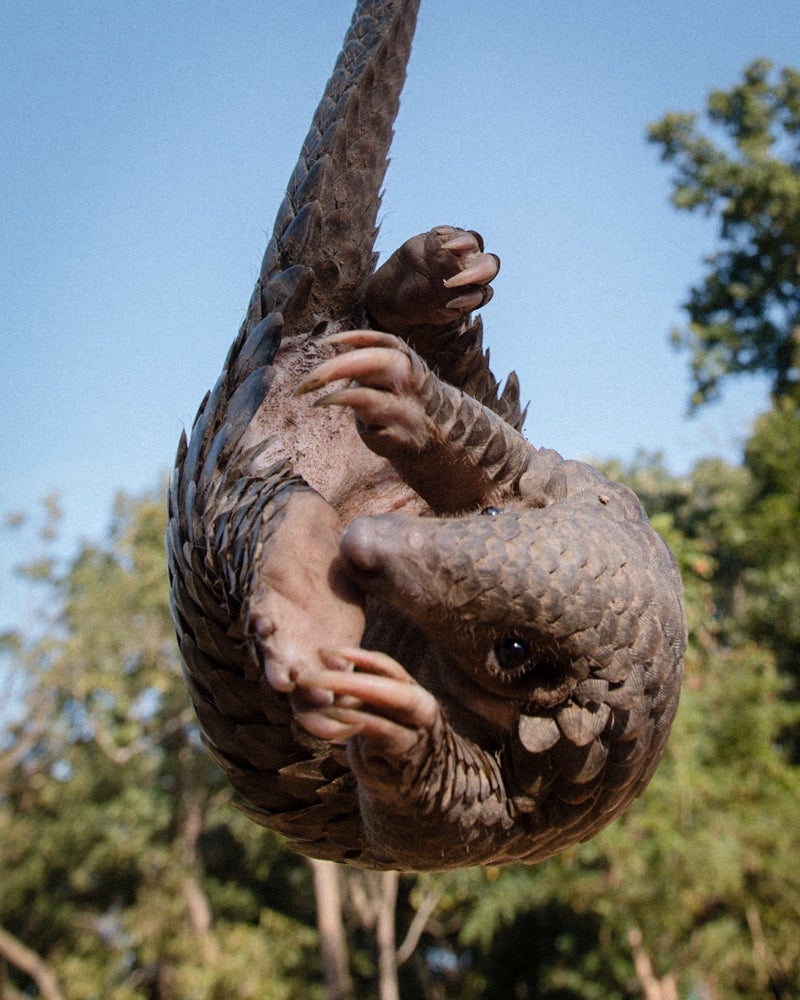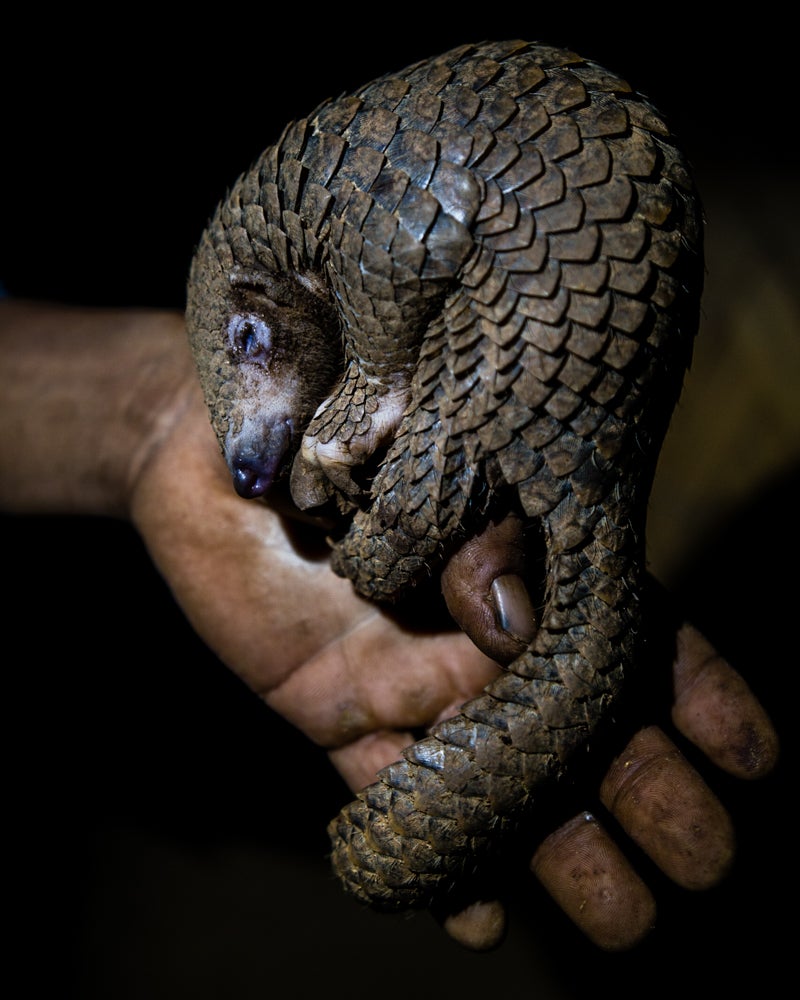Hunters bludgeon endangered pangolin to death for Asian medicine, undercover footage reveals
'This footage shines a spotlight on how truly shocking the practice of hunting pangolins is', lead conservation researcher says
Your support helps us to tell the story
From reproductive rights to climate change to Big Tech, The Independent is on the ground when the story is developing. Whether it's investigating the financials of Elon Musk's pro-Trump PAC or producing our latest documentary, 'The A Word', which shines a light on the American women fighting for reproductive rights, we know how important it is to parse out the facts from the messaging.
At such a critical moment in US history, we need reporters on the ground. Your donation allows us to keep sending journalists to speak to both sides of the story.
The Independent is trusted by Americans across the entire political spectrum. And unlike many other quality news outlets, we choose not to lock Americans out of our reporting and analysis with paywalls. We believe quality journalism should be available to everyone, paid for by those who can afford it.
Your support makes all the difference.Undercover footage has revealed hunters tracking down a terrified pangolin and bludgeoning it to death to be sold for superstitious Asian “medicine” practices.
Wildlife crime investigators filmed the video to expose how the world’s most-trafficked mammal is being driven to extinction by ruthless black-market operators who exploit both local communities and beliefs in fake medical treatments.
Secretly captured by an undercover researcher on their mobile phone in India, the clip shows the pangolin clinging for life in a hollowed-out tree as its tail is tugged. The hunters use axes to cut the tree, but failing to remove the animal, they light a fire to smoke it out.
As the pangolin starts to suffocate, it makes a bolt for freedom but is captured, bagged and taken to a hut, where it is repeatedly hit with a machete until it is motionless but bleeding.
It is then thrown – possibly still alive, investigators believe – into a cauldron of boiling water.
Its body would have become just one of thousands illegally trafficked, mostly for their scales but also sold to restaurants for meat. The dead animals – like small, scaly anteaters – sell for a premium, with just one providing the equivalent of four months’ salary for a hunter in India, experts claim.

The footage was taken as part of a two-year study by experts from the University of Oxford and World Animal Protection (WAP) into hunting in the state of Assam, north-eastern India.
The researchers, who interviewed more than 140 locals, found that pangolins were largely targeted for their scales, and that people in rural communities were being “driven and exploited to hunt the gentle creatures to meet demand”.
China and Vietnam account for most demand for the scales, which are made of keratin, the same material as human fingernails and hair, and have no proven medicinal value.
They are roasted or fried for eating or boiled down for rice wine in the misguided belief they can cure cancer as well as conditions such as skin diseases, impotence or palsy.
Pangolin meat is also considered to be a delicacy in some places where it is served in upmarket restaurants, and the scales are also used as decorations for rituals and jewellery.
All eight species of pangolin in Africa and Asia are at high risk of extinction, and are on David Attenborough’s list of top 10 species to save from extinction. The International Union for the Conservation of Nature (IUCN) says it is “literally being eaten out of existence”.
But the report by WAP and Oxford’s WildCRU (Wildlife Conservation Research Unit) says the hunters interviewed were unaware of the part they are playing in the illegal international trafficking trade.
Neil D’Cruze, the lead researcher, said: “Suffocated with smoke, beaten and boiled alive – this is a terrifying ordeal, and pangolins clearly suffer immensely.

“This footage shines a spotlight on how truly shocking the practice of hunting pangolins is. Not only is this a major conservation issue, it’s also a devastating animal-welfare concern.
“If we want to protect pangolins from pain and suffering in the countries they come from, we need to tackle the illegal poaching trade.”
Prof David Macdonald, of WildCRU, said: “Scales from just one pangolin can offer a life-changing sum of money for people in these communities, but it’s in no way sustainable.”
It is thought that at least a million individual pangolins were taken from the wild between 2000 and 2013.
World Animal Protection is calling for pangolins to be removed from the traditional medicine handbook in China, the Pharmacopoeia of the People’s Republic of China, and for investment in and promotion of herbal and synthetic alternatives.
The charity also wants governments and the traditional Asian medicine community to support alternative livelihoods in rural communities that hunt pangolins.

Join our commenting forum
Join thought-provoking conversations, follow other Independent readers and see their replies
Comments